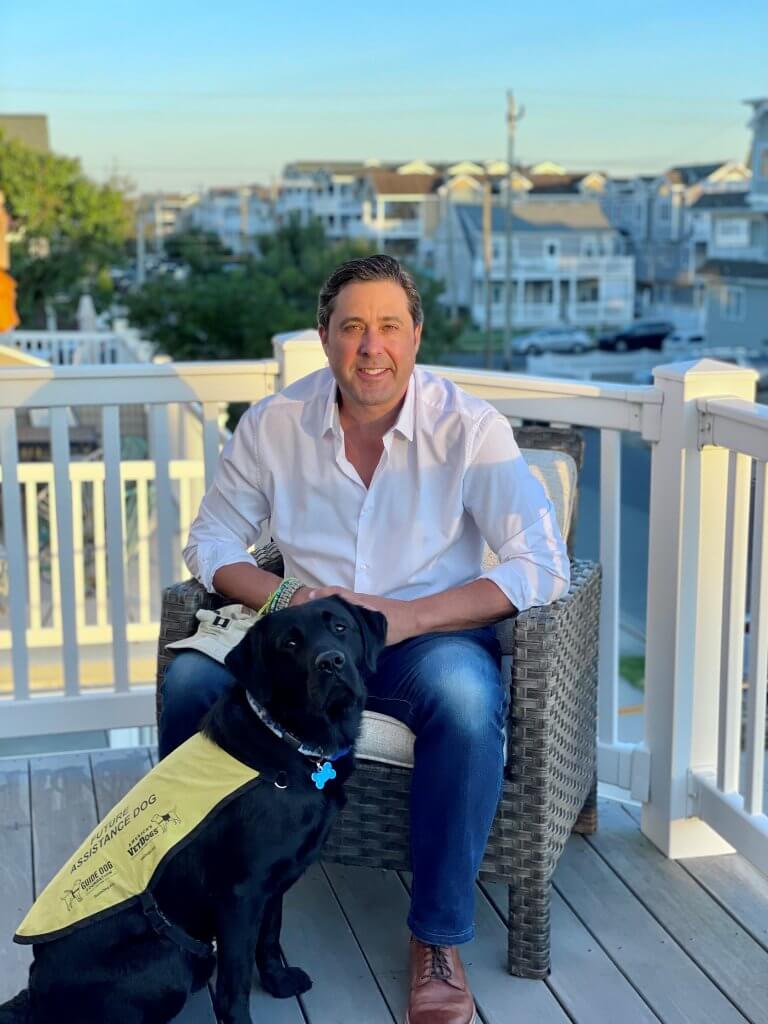The VFW is honoring the canine courage and companionship of military and veteran service dogs as part of its annual #StillServing campaign.
Some service dogs, like Riley, a 7-year-old Clumber Spaniel, help their veteran owners deal with PTSD and after-combat anxiety.
“It means everything to me to have Riley at my side,” said former Oregon National Guard 1st Sgt. Lewis Franklin. “My psychology appointments went from four times a month to basically just doing ‘group’ sessions. I have no issues with travel now and have learned to deal with the attention Riley can draw.”
Franklin was near Disneyland years ago when the nightly fireworks began booming. It caught him off guard, but Riley used his weight and soft fur to help Franklin calmly get through.
“Dogs understand us, and most are filled with selfless love,” he said. “They can change everything about the way the war has affected you, letting you know, ‘Hey, I am here, I will be here; you can always count on me.’”
Other dogs are being trained by veterans for a future in helping those with special needs. Colin Ratner, a former Army Reserve captain, is currently raising Hero, a young black lab, for eventual training and certification with the Guide Dog Foundation. As a busy Philadelphia nurse and married father of two, Ratner chose to get involved not because he has spare time, but because he hopes to make a difference in a stranger’s life.
“We know we are providing service to someone who needs it,” Ratner said. “There’s nothing holding us back from sharing our lives to help someone who needs it through Hero. As hard as it’s going to be for him to leave us, we know we’re doing something good.”
Other veterans utilize their service dogs for both their personal needs and public service. Julian King, who retired from the National Guard, relies on his female Labrador Retriever named Mocha to manage stress and help with medical emergencies. But Mocha and King also serve as a therapy team at a veteran’s hospice, comforting those who are preparing to die.
“One of the hospice veterans we visit would say that Mocha was half his and half mine,” King said. “One day, when we came into his room, he was eating a snack, so I asked him, ‘Please do not feed the dog because she’s working.’ He gave her the snack anyway and told me quite matter-of-factly, ‘Don’t worry; I only fed my half, not yours.’”
It’s these sorts of stories and connections the VFW is hoping to highlight through its #StillServing campaign.
“We value the outstanding service these wonderful animals are able to provide and want to recognize dogs who have been or currently are a great help to us,” said Fritz Mihelcic, VFW Commander-in-Chief, in a press release. “There are many veterans continuing to answer the call of duty or overcoming challenges in their lives, and we know that some of them can’t imagine doing that without a special dog by their side.”
Ratner knows exactly how special Hero is — and how Hero is a continuation of the spirit of his military service.
“My daughter was crying one day, and Hero ran over, put his head in her lap — his instincts are off-the-chart incredible,” he said. “Whoever gets paired up with him is going to be a very fortunate person.”
King, meanwhile, is grateful to be teamed up with someone who loves him so unconditionally. “Mocha has been a lifesaver for me,” he said.
Franklin said simply, “Riley has my six.”

